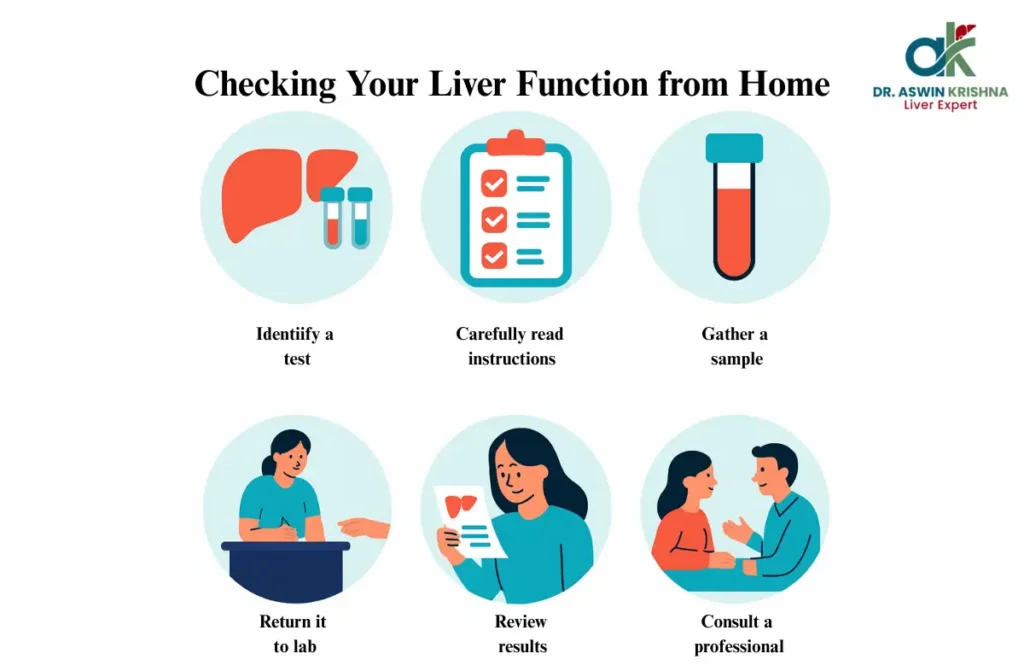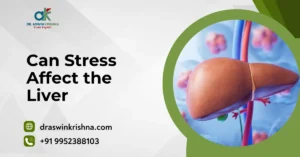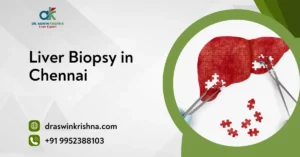Your liver is like the body’s silent multitasker — filtering toxins, aiding digestion, storing nutrients, and keeping your blood chemistry balanced. Yet, it rarely complains until things get serious. For those with existing conditions or simply a desire to stay ahead of health problems, knowing how to check liver function at home can be a game changer. With the right approach, you can monitor your liver’s well-being conveniently and take early steps toward protecting this vital organ before trouble starts knocking.
Where is your liver?
Your liver is located in the upper right part of your abdomen, just below your diaphragm and protected by your rib cage. It sits beside the stomach and above the intestines, working closely with the gallbladder to process nutrients, filter toxins, and produce bile. Knowing its location is essential when learning how to check liver function at home, as discomfort or swelling here can indicate potential liver issues.
What is a liver blood test?
A liver blood test is a medical examination that measures specific enzymes, proteins, and substances in your blood to assess how well your liver is functioning. It’s a crucial step when exploring how to check liver function at home or how to test liver function, especially if you’re monitoring an existing condition or looking for early signs of liver problems.
- Purpose of the Test – The test evaluates how effectively your liver processes waste, produces proteins, and manages essential chemical balances. Elevated or reduced levels can indicate inflammation, damage, or disease.
- Key Enzymes Measured – Common markers include ALT, AST, ALP, and bilirubin. Each plays a role in digestion, detoxification, and metabolic functions, providing insight into your liver’s overall health.
- When It’s Recommended – Doctors may suggest this test if you have symptoms like persistent fatigue, abdominal pain, or yellowing of the skin. It’s also useful for people with conditions such as fatty liver, hepatitis, or long-term alcohol use.
What can a liver blood test tell you?
A liver blood test can uncover important details about your health, making it an essential tool when learning how to check liver function at home, how to boost liver function naturally, or how to test liver function. The results can guide lifestyle changes, medical treatments, and preventive care.
- Detection of Inflammation or Damage – Abnormal enzyme levels, such as elevated ALT or AST, may indicate that liver cells are inflamed or injured, even before symptoms appear.
- Assessment of Bile Flow – Higher-than-normal ALP or bilirubin levels could signal problems with bile production or blockages, affecting digestion and nutrient absorption.
- Evaluation of Protein Production – Low albumin levels might suggest the liver is struggling to produce essential proteins, which can affect immunity, healing, and overall energy levels.
- Monitoring of Chronic Conditions – Regular tests can help track the progression or improvement of conditions like hepatitis, fatty liver, or cirrhosis, ensuring timely adjustments in care.

Who should do a liver blood test?
Knowing how to check liver function at home is valuable, but certain people should be especially proactive in getting a liver blood test, along with learning how to boost liver function naturally.
- People with Persistent Symptoms – Individuals experiencing unexplained fatigue, abdominal discomfort, jaundice, or dark urine should consider a test to rule out liver-related causes.
- Those with Pre-existing Liver Conditions – Patients diagnosed with fatty liver, hepatitis, or cirrhosis require regular monitoring to track disease progression and adjust treatment if necessary.
- High-Risk Groups – People with a history of heavy alcohol use, obesity, diabetes, or long-term medication intake are at greater risk for liver issues and should test periodically.
- Family History of Liver Disease – If liver disorders run in your family, early and regular testing can help detect potential problems before they become severe.
What’s included in a liver blood test?
When exploring how to check liver function at home or how to test liver function, it’s important to know what a standard liver blood test measures. Each marker offers a unique insight into how your liver is performing.
- Alanine Aminotransferase (ALT) – High ALT levels often indicate liver cell damage, as this enzyme is released into the bloodstream when the liver is injured.
- Aspartate Aminotransferase (AST) – This enzyme is found in the liver and other organs. Elevated AST, especially with ALT, can point toward liver inflammation or damage.
- Alkaline Phosphatase (ALP) – Increased ALP may signal bile duct blockages or other issues with bile flow.
- Bilirubin – This substance is produced during the breakdown of red blood cells. High levels can lead to jaundice and may suggest liver or bile duct problems.
- Albumin and Total Protein – These measure the liver’s ability to produce essential proteins for body functions like nutrient transport and tissue repair.
What are the signs and symptoms of liver disorders?
Recognizing warning signs is essential when learning how to check liver function at home and exploring how to improve liver function. Early detection can prevent further damage and improve recovery chances.
- Persistent Fatigue and Weakness – A struggling liver may not efficiently remove toxins, leading to constant tiredness and reduced energy levels.
- Yellowing of Skin or Eyes (Jaundice) – Excess bilirubin in the blood can cause this yellowish discoloration, often linked to liver inflammation or bile duct issues.
- Abdominal Swelling or Pain – Discomfort on the right side under the rib cage could signal liver enlargement, fluid buildup, or inflammation.
- Unexplained Weight Loss or Loss of Appetite – A compromised liver may affect metabolism and digestion, resulting in sudden appetite changes and weight fluctuations.
- Dark Urine or Pale Stools – These can indicate bile production or flow problems, requiring further investigation.
How do you check your liver health?
Understanding how to check liver function at home and how to increase liver function involves a mix of self-monitoring and simple home-based tools, combined with professional guidance when needed.
- Use At-Home Liver Test Kits – These kits usually require a small finger-prick blood sample, which is then analyzed for key liver enzymes and markers. They offer a convenient way to get preliminary insights.
- Monitor Physical Symptoms – Keep track of changes like fatigue, yellowing of the eyes, abdominal swelling, or dark urine. Recording these over time helps identify patterns.
- Track Lifestyle Factors – Regularly review your alcohol intake, diet, and exercise habits, as these greatly influence liver performance and recovery potential.
- Regular Health Check-ins – Even if you use home methods, scheduling periodic professional evaluations ensures accuracy and early detection of issues.
What if your liver blood test results contain abnormalities?
When learning how to check liver function at home or understanding the liver function test procedure, it’s important to know how to respond to abnormal results. Abnormalities don’t always mean permanent damage, but they do require careful attention.
- Identify the Specific Marker – Elevated ALT, AST, or bilirubin levels point to different potential issues. Knowing which marker is abnormal helps target the right follow-up action.
- Review Lifestyle Factors – Diet, alcohol use, medication side effects, or recent illnesses can temporarily alter liver readings. Understanding these can help in making immediate adjustments.
- Follow-Up Testing – A single abnormal result should be confirmed with repeat tests to ensure it’s not a temporary fluctuation.
- Seek Professional Evaluation – Persistent or significantly abnormal results often require imaging scans, further blood work, or specialist advice to pinpoint the cause and start treatment promptly.
Interpreting your liver blood test results
When exploring how to check liver function at home and how to improve your liver function naturally, understanding your results is as important as taking the test itself. Proper interpretation helps guide next steps for treatment or lifestyle changes.
- Comparing to Normal Ranges – Each marker (ALT, AST, ALP, bilirubin, albumin) has a healthy range. Deviations above or below these limits can signal specific liver conditions.
- Looking at Patterns, Not Just One Result – Multiple markers changing together, such as ALT and AST both being elevated, can provide stronger clues about the underlying issue.
- Considering Symptoms Alongside Results – Lab numbers should be interpreted in the context of physical signs like fatigue, jaundice, or abdominal pain for a complete picture.
- Monitoring Changes Over Time – Tracking results from multiple tests can show whether your liver health is improving, stable, or declining, helping guide the right action plan.
What affects your liver health?
Understanding how to boost liver function naturally and how to improve your liver function naturally starts with knowing what can harm or protect this vital organ.
- Dietary Choices – Excess processed foods, refined sugars, and unhealthy fats can strain the liver, while nutrient-rich foods like leafy greens, berries, and lean proteins support its function.
- Alcohol Consumption – Heavy or regular drinking is one of the leading causes of liver damage, increasing the risk of fatty liver, hepatitis, and cirrhosis.
- Medications and Supplements – Overuse of certain painkillers, herbal supplements, or prescription drugs can stress the liver’s detoxification system.
- Infections and Medical Conditions – Hepatitis viruses, obesity, and uncontrolled diabetes are significant threats to liver health. Managing these conditions reduces the burden on the liver.
- Physical Activity Levels – Regular exercise helps maintain a healthy weight and improves liver fat metabolism, lowering the risk of fatty liver disease.
How do drugs affect your liver?
When learning how to improve liver function naturally and how to test liver function, it’s essential to understand how certain drugs impact your liver’s workload.
- Metabolism and Detoxification Load – The liver processes most medications, breaking them down into forms the body can eliminate. High doses or prolonged use can overwhelm this system.
- Risk of Drug-Induced Liver Injury – Some medications, such as high-dose acetaminophen, certain antibiotics, or chemotherapy drugs, can directly damage liver cells if not monitored carefully.
- Interaction with Pre-existing Conditions – If you already have liver disease, even normal doses of some drugs can cause complications. In such cases, doctors may adjust dosages or recommend alternatives.
- Impact of Herbal and Over-the-Counter Products – Natural does not always mean safe; some herbal supplements can cause inflammation or toxicity in the liver if taken excessively.
How to improve your liver health
Knowing how to improve liver function and how to increase liver function involves consistent, supportive lifestyle choices that help your liver regenerate and work efficiently.
- Adopt a Liver-Friendly Diet – Focus on fresh fruits, vegetables, whole grains, lean proteins, and healthy fats. Reduce processed foods, excess sugar, and saturated fats to lighten the liver’s load.
- Stay Hydrated – Adequate water intake supports detoxification and helps the liver flush out waste more effectively.
- Limit Alcohol and Toxins – Cutting back on alcohol and avoiding unnecessary chemical exposure prevents liver strain and long-term damage.
- Maintain a Healthy Weight – Managing weight through balanced eating and exercise reduces fat buildup in the liver, lowering the risk of fatty liver disease.
- Incorporate Regular Exercise – Physical activity improves circulation, supports metabolism, and helps the liver process nutrients more efficiently.
Conclusion
Maintaining liver health is crucial for energy production, toxin removal, and overall well-being, and ignoring early warning signs can lead to serious complications. While clinical tests are the most accurate, knowing how to check liver function at home—by monitoring symptoms like yellowing of the skin or eyes, dark urine, persistent fatigue, or abdominal discomfort—can prompt early action. Pairing these observations with healthy habits such as a balanced diet, regular exercise, adequate hydration, and minimal alcohol intake helps protect liver function. Stay proactive, and if symptoms persist, get a professional liver function test to ensure timely intervention and long-term health.
Read also How to Stop Liver Pain Immediately.



